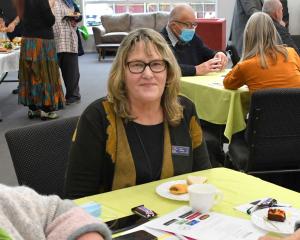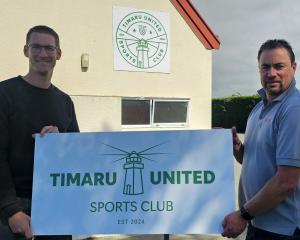
Up to June 24, Timaru had experienced 21 high-pollution nights this winter - the highest number by this date since 2001, when there were 22 nights.
Environment Canterbury (Ecan) air monitoring team leader Teresa Aberkane said there were eight high-pollution nights at the same stage last winter, when the weather was more changeable and cloudier than usual.
Between 1999 and 2006, the number of high-pollution nights by this date varied between 10 and 23, she said.
‘‘It's shaping up to be a bad air pollution year at this stage.''
The city's first high-pollution night was recorded on April 4, with the guideline exceeded frequently from early May. The maximum reading of 109 on June 12 was more than double the health guideline of 50.
Ecan also monitors air pollution levels in Washdyke, Waimate and Geraldine. Up to June 24, Washdyke had experienced three high-pollution nights, Waimate six and Geraldine five nights.
The air pollution in South Canterbury towns consists of small particles in the air called suspended particulate, caused mainly by the burning of wood and coal for home heating.
The National Environmental Standard for Air Quality, set by the Ministry for the Environment, is a 24-hour average concentration of 50 micrograms of suspended particulate per cubic metre of air. Air pollution is high when it exceeds this guideline.
Ecan director of operations Ken Lawn said staff were ‘‘putting the final touches in place'' on Timaru's Clean Heat Project, which would provide subsidies or loans to homeowners and landlords to buy and install clean heating appliances and insulation.
Mr Lawn said he expected homeowners would be able to apply for the scheme by the end of August. One assessor would be appointed for Timaru. However, another could be employed if demand warranted it, he said.
Ecan estimates Timaru has 6000 to 6500 properties that have an open fire or coal and wood-burning appliance.
Mr Lawn said about 40 per cent of these could be replaced with approved low-emission wood burners or pellet fires and still meet the Ministry for the Environment target to reduce high-pollution nights to one a year from September 2013.
Ecan had a strong incentive to try to achieve the target, with the consequence of failure being that local authorities would be unable to issue air discharge consents to new facilities requiring burners, such as schools, hospitals and businesses, he said.
However, the Clean Heat Project alone would not be sufficient to achieve the target and Ecan was now in discussions with the Timaru District Council on regulatory provisions such as banning the use of open fires and old solid fuel burners by certain dates, Mr Lawn said.
There are now no restrictions on existing open fires or solid fuel burners in Timaru. However, newly installed wood-burners on properties smaller than 2ha must be low-emission models.












